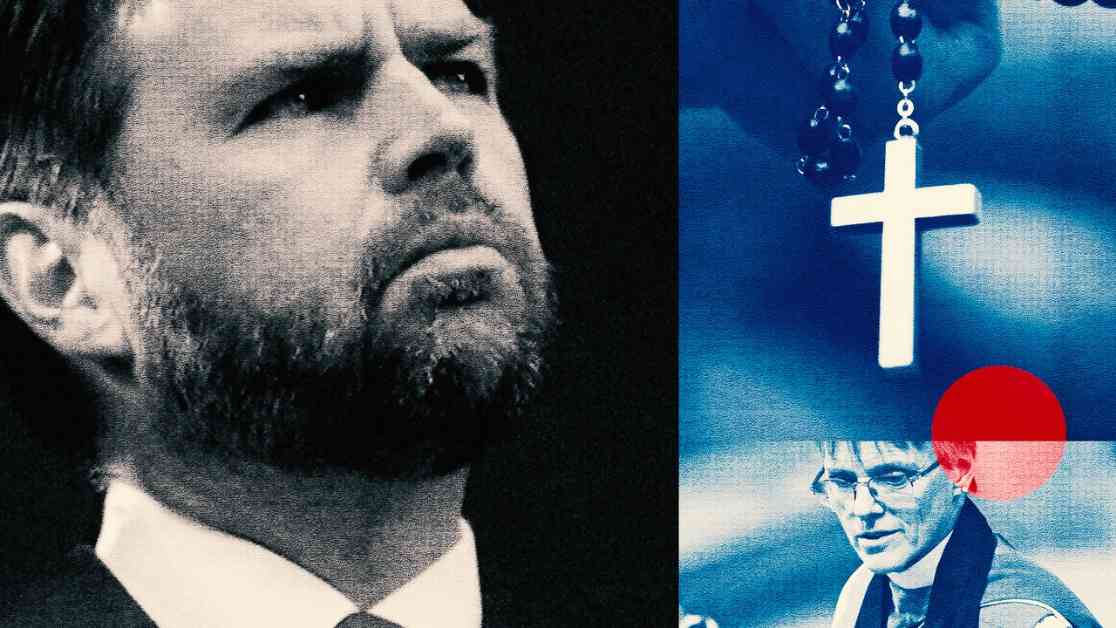Since Inauguration Day, tensions have been escalating between Christian leaders and the Trump administration, specifically Vice-President J. D. Vance, over the issue of charity. The clash came to a head following a prayer service at the National Cathedral, where Episcopal bishop Mariann Edgar Budde directly appealed to President Trump to show mercy towards marginalized communities impacted by his proposed policies. This move was unprecedented, as it challenged a figure typically shielded from personal appeals due to his office. The bishop’s plea reflected a broader consensus among Christian leaders, including Pope Francis and the National Council of Churches, who have long opposed Trump’s immigration rhetoric and policies.
Christian Leaders Denounce Trump’s Immigration Policies
In the wake of Trump’s reelection, prominent Catholic archbishops, Cardinals Blase Cupich and Joseph Tobin, voiced strong support for immigrants, emphasizing the need to balance national security with respect for human dignity. Cardinal Robert McElroy of San Diego also emphasized the importance of upholding Catholic doctrine while addressing immigration issues. As Catholic bishops continued to advocate for compassionate immigration policies, J. D. Vance criticized the U.S. Conference of Catholic Bishops for receiving funds to support illegal immigrants, questioning their motives.
Theological Debate Ignites Over Charity and Immigration
The theological debate intensified when Vance invoked the writings of Thomas Aquinas to argue against efforts to provide charity to immigrants, suggesting that prioritizing American citizens aligns more closely with Christian teachings. This perspective was met with criticism from British academic Rory Stewart, who denounced Vance’s interpretation of Christian values. The ensuing social media debate highlighted differing views on the moral obligations to assist those in need, both locally and globally.
The discourse on charity and immigration reached a critical juncture when Vance accused U.S.A.I.D. of funding programs promoting atheism, a claim that lacked substantiation. This accusation, in light of Elon Musk’s actions to dismantle the agency, sparked renewed discussions on the role of charitable organizations and their impact on vulnerable populations. As Catholic Relief Services faced funding cuts due to the proposed dismantling of U.S.A.I.D., concerns grew over the implications for humanitarian aid efforts both domestically and internationally.
As the debate unfolded, Archbishop Robert McElroy emerged as a prominent voice challenging Trump and Vance on their policies. With a background in history and a deep understanding of migration issues, McElroy is poised to lead a coalition of prelates appointed by Pope Francis in advocating for compassionate responses to immigration challenges. His forthcoming installation as the Archbishop of Washington signals a shift towards a more direct confrontation with the administration over issues of social justice and human rights.
In a letter to U.S. bishops, Pope Francis urged a spirit of inclusivity and compassion towards migrants and refugees, emphasizing the importance of building a community that embraces all individuals without discrimination. This call for solidarity echoes McElroy’s plea to end the culture of fear and hostility towards migrants, setting the stage for a potentially transformative shift in the Catholic Church’s stance on immigration issues. The dialogue between religious leaders, policymakers, and the public continues to shape the discourse on charity, immigration, and social justice in the United States.












